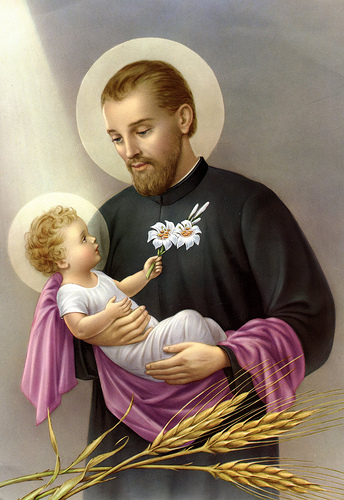
St. Cajetan

Gaetano dei Conti di Thiene also known as St. Cajetan (October 1, 1480 – August 7, 1547), was an Italian Catholic priest and religious reformer, who helped found the Theatines. St. Cajetan is recognised as a saint in the Catholic Church, and his feast day is August 7.
St. Cajetan was born in October 1480, the son of Gaspar, lord of Thiene, and Mary Porta, persons of the first rank among the nobility of the territory of Vicenza, in Lombardy.[1]
His father died when he was two years of age. Quiet and retiring by nature, St. Cajetan was predisposed to piety by his mother. St. Cajetan studied law in Padua, receiving his degree as doctor utriusque juris (i.e., in civil and canon law) at age 24. In 1506 St. Cajetan worked as a diplomat for Pope Julius II, with whom he helped reconcile the Republic of Venice. But he was not ordained a priest until the year 1516.
With the death of Pope Julius II in 1513. St. Cajetan withdrew from the papal court. Recalled to Vicenza by the death of his mother, St. Cajetan founded in 1522 a hospital for incurables there. By 1523 he had established a hospital in Venice, as well. His interests were as much or more devoted to spiritual healing than the physical kind, and He joined a confraternity in Rome called the “Oratory of Divine Love“. He intended to form a group that would combine the spirit of monasticism with the exercises of the active ministry.
Cajetan died in Naples on August 7, 1547. His remains are in the church of San Paolo Maggiore in Naples; outside the church is Piazza San Gaetano, with a statue.
He was beatified on October 8, 1629, by Pope Urban VIII. On April 12, 1671, Cajetan was canonized together with Rose of Lima, Luis Beltrán, Francis Borgia and Felipe Benicio. His feast day is celebrated on August 7.
St. Cajetan is known as the patron saint of Argentina, the unemployed, gamblers, document controllers, and good fortune.